This seemingly mundane move is anything but, as the situation of Serbs living near the border between Serbia and Kosovo is at the center of a long-running conflict between the two governments. Kosovo declared independence from Serbia in February 2008, but Serbia still considers Kosovo its territory.
“The general security situation in the municipalities of northern Kosovo is tense,” NATO peacekeeping force In Kosovo on Sunday in a statement. Serbian President Aleksandar Vucic He said“We’ve never been in a more difficult situation before.”
What are the tensions revolving in Kosovo?
The recent escalation in tensions is linked to new rules on license plates and cross-border travel documents.
Under the new regulations that were supposed to come into effect on August 1, Serbs living in villages in northern Kosovo were required to apply for license plates issued by the Kosovo authorities for their cars. Since the 1998-1999 war, some of these residents have used Serbian license plates of different status. The authorities in Kosovo have tolerated the dual-track system to keep the peace but said last year they would He doesn’t do that anymore.
Another rule was that Serbian nationals visiting Kosovo would have to obtain an additional entry-exit document from the Kosovo authorities at the border. Previously, they could enter without it. Serbia imposes a similar rule on Kosovars seeking to cross its borders.
The government in Kosovo’s capital, Pristina, has been trying for years to assert full institutional control over the ethnic Serb-majority areas of northern Kosovo, but it has faced fierce resistance from residents who still consider their communities to be part of Serbia.
On Sunday, ethnic Serbs closed roads in northern Kosovo in protest against the new rules, forcing Kosovo authorities to close two border crossings, Yaringi and Prncak. Kosovo police said shots fired In their direction during the protests, although no one was injured, according to Reuters.
Belgrade claims the new rules are being violated in 2011 Agreement on freedom of movement between Kosovo and Serbia.
Kosovo’s allies, including the United States and the European Union, called for calm and urged Pristina to do so Execution delay of the new rules. Late Sunday, Kosovo agreed to a 30-day delay if all roadblocks were removed. Albin Kurti, Prime Minister of Kosovo, accused the protesters of trying to “destabilize” Kosovo and accused Serbia of orchestrating “aggressive actions” during the protests.
In cooperation with our international allies, we pledge to postpone the implementation of decisions regarding license plates and entry and exit documents at border crossing points with Serbia for a period of 30 days, provided that all barriers are removed and full freedom of movement is restored. pic.twitter.com/oJNaQi0qPO
– Albinkurti (albinkurti) July 31, 2022
Josep Borrell, the EU’s top diplomat, Welcome the decision of Kosovo Postponing the new measures until September 1, he said he expected “all barriers to be removed immediately”.
How does this relate to the Serbia-Kosovo conflict?
The roots of the conflict between Serbia and Kosovo go back to the breakup of Yugoslavia in the early 2000s, which followed a long period of inter-ethnic conflicts between the republics of Yugoslavia in the 1990s. Serbia and Kosovo fought a brutal war between 1998 and 1999 that ended with NATO’s participation in a US-backed bombing campaign against Serbian territory.
Serbia is a majority Orthodox Christian country, but Kosovo – formerly a province of Yugoslavia – is dominated by Albanians, who are mostly Muslims, as well as a minority of ethnic Serbs. Tensions erupted between the groups, notably over moves in 1989 by Yugoslav President Slobodan Milosevic, a Serb nationalist, to abolish Kosovo’s autonomy enshrined in the Yugoslav constitution.
In response, Kosovo militants formed the Kosovo Liberation Army and launched attacks against Serbia in the following years as they pressed for the creation of a new state that would include ethnic Albanian minorities in the region. Members of the Kosovo Liberation Army have also been accused of crimes war crimes Against ethnic Serbs in Kosovo and Those who considered them collaborators.
The authorities in Belgrade launched a violent campaign against the Albanian population of Kosovo, viewing them as supporters of the KLA and its separatist attacks. More than a million Kosovar Albanians were driven from their homes.
Western countries and NATO intervened, bringing the parties together in France in February 1999 to negotiate an armistice. While the Kosovar side agreed to the armistice, Yugoslavia – which at that time included only Serbia and Montenegro – did not. atrocities committed against the Kosovar Albanians He continued what the US State Department described at the time as the “systematic campaign” by “Serbian forces and paramilitaries” of the “ethnic cleansing of Kosovo”.
In response, NATO launched a devastating 11-week bombing campaign against Yugoslavia that ended in June 1999, when the country signed an agreement agreement with NATO to allow Peacekeeping Force in Kosovo.
Why is NATO in Kosovo, and what is its mandate?
NATO has had a peacekeeping force in Kosovo – the Kosovo Force, or KFOR – since June 1999. The force’s establishment was approved by a UN Security Council resolution.
The initial objective of the Kosovo Force was to prevent the outbreak of conflict between Serbs and Albanians after NATO and Yugoslavia signed a peace agreement allowing the return of Albanians who had been displaced by the war.
Since then, the strength has been gradually reduced, from about 50,000 to less than 4,000 today. In her own words, she works on Maintaining security and stability In the region, support humanitarian groups and civil society, train and support the Kosovo Security Force and “support the development of a stable, democratic, multi-ethnic and peaceful Kosovo.”
In her statement about Protests in Kosovo On Sunday, Kfour said it was “monitoring” the situation and was “ready to intervene if stability is threatened.”
What does this have to do with the Russian-Ukrainian war?
The Balkans did not run away from Echoes of the war in Ukraine.
Kosovo has Ukraine supported Since the Russian invasion, which Kurti, the prime minister, has described as an “attack on us all”. Ukraine did not recognize the independence of Kosovo.
Russia – a long-standing ally of Serbia – also does not recognize Kosovo as an independent state, echoing Serbia’s president in blaming the government in Pristina for renewed tensions in northern Kosovo.
Maria Zakharova, a spokeswoman for the Russian Foreign Ministry, accused Kosovo on Sunday of using new licensing laws and identity documents to discriminate against the Serb population.
“We call on Pristina, the United States and the European Union to support it to stop provocations and respect the rights of Serbs in Kosovo,” she said. tast news agency.
Russian President Vladimir Putin cited Kosovo to justify his recognition of two separatist provinces in the Donbass region of eastern Ukraine. Many Western countries are recognized [Kosovo] as an independent country Putin told UN Secretary-General Antonio Guterres When the two met in April. “We have done the same with regard to the Donbass republics.”
Rachel Bennett and Ishaan Tharoor contributed to this report.

“Infuriatingly humble alcohol fanatic. Unapologetic beer practitioner. Analyst.”

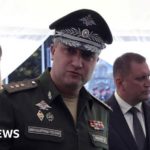

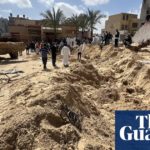
:quality(70)/cloudfront-eu-central-1.images.arcpublishing.com/liberation/BG353IQT3RDR3HK7PEMR6QCK64.jpg)
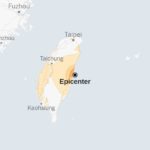

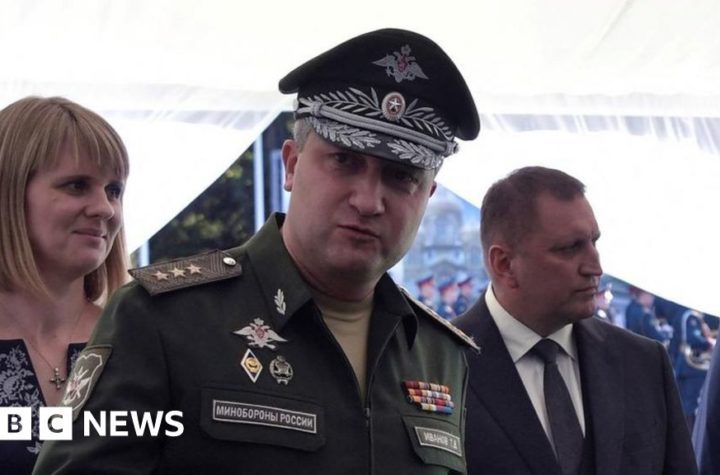
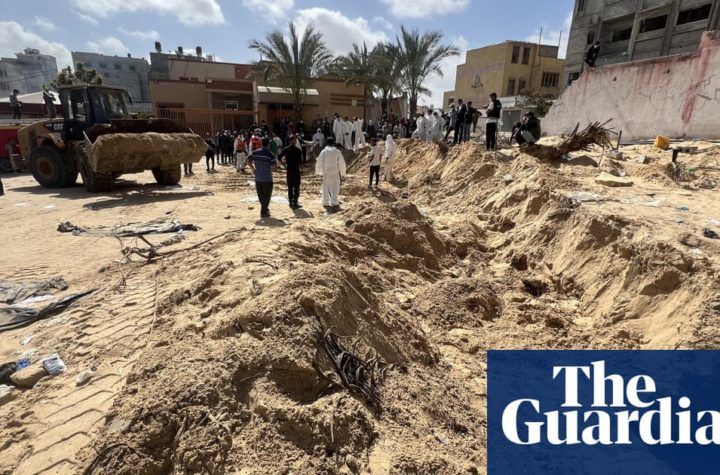
More Stories
Russian Deputy Defense Minister arrested on charges of receiving bribes
The High Commissioner for Human Rights is horrified by reports of mass graves in two hospitals in Gaza Israel-Gaza war
Maps: Earthquakes shake eastern Taiwan